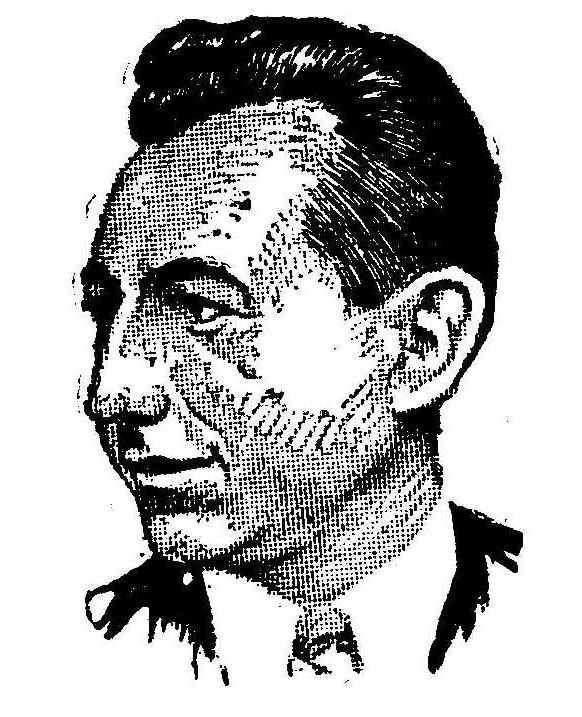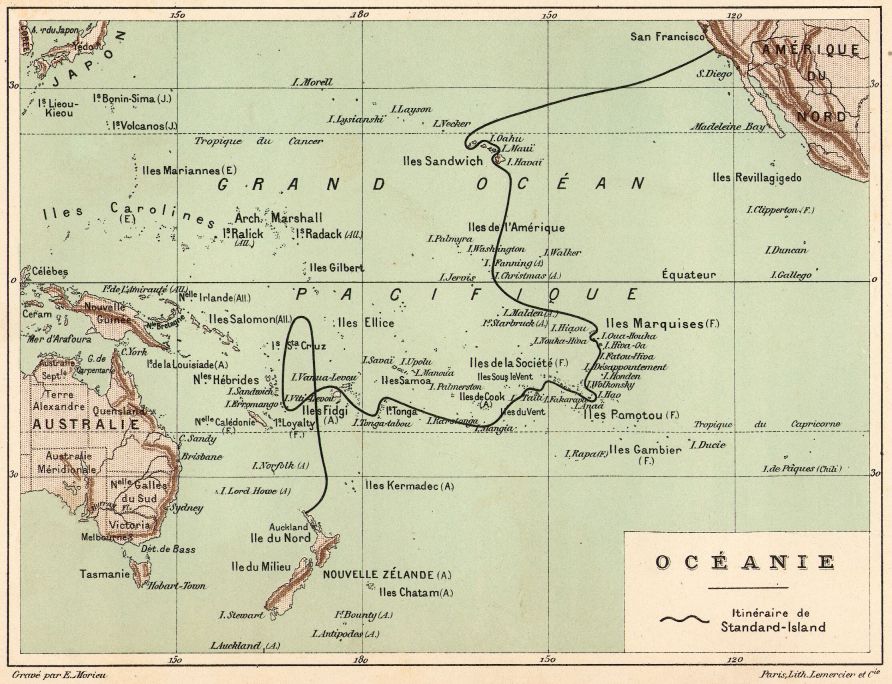|
1895 In Science Fiction
{{sf-stub ...
The year 1895 was marked, in science fiction, by the following events. Births and deaths Births * January 16 : Nat Schachner, American writer (died 1955) * December 16 : B. R. Bruss, French writer (died 1980) Deaths Events Awards The main science-fiction Awards known at the present time did not exist at that time. Literary releases Novels * ''Propeller Island'' by Jules Verne. * ''The Time Machine'' by H. G. Wells. Stories collections Short stories * "Un Autre Monde" ("Another World") by J.-H. Rosny aîné References Science fiction by year * * science-fiction Science fiction (sometimes shortened to Sci-Fi or SF) is a genre of speculative fiction which typically deals with imaginative and futuristic concepts such as advanced science and technology, space exploration, time travel, parallel univer ... [...More Info...] [...Related Items...] OR: [Wikipedia] [Google] [Baidu] |
Science Fiction
Science fiction (sometimes shortened to Sci-Fi or SF) is a genre of speculative fiction which typically deals with imagination, imaginative and futuristic concepts such as advanced science and technology, space exploration, time travel, Parallel universes in fiction, parallel universes, extraterrestrials in fiction, extraterrestrial life, sentient artificial intelligence, cybernetics, certain forms of immortality (like mind uploading), and the technological singularity, singularity. Science fiction List of existing technologies predicted in science fiction, predicted several existing inventions, such as the atomic bomb, robots, and borazon, whose names entirely match their fictional predecessors. In addition, science fiction might serve as an outlet to facilitate future scientific and technological innovations. Science fiction can trace its roots to ancient mythology. It is also related to fantasy, Horror fiction, horror, and superhero fiction and contains many #Subgenres, sub ... [...More Info...] [...Related Items...] OR: [Wikipedia] [Google] [Baidu] |
Nat Schachner
Nathaniel Schachner ((January 16, 1895 – October 2, 1955), who published under the names Nat Schachner and Nathan Schachner, was an American writer, historian, and attorney, as well as an early advocate of the development of rockets for space travel. A prominent author of historical works on figures from America's Revolutionary Era, Schachner also was a regular contributor to the genre leading up to and during the early years of what came to be referred to as the Golden Age of Science Fiction (c. 1938–1946). Best known for his biographies of American historical figures such as Thomas Jefferson and Alexander Hamilton, Schachner began his writing career contributing short stories to leading "pulp magazines" that specialized in science fiction, horror, mystery, and adventure genres. During the heart of the Great Depression, he contributed more than fifty stories to magazines such as ''Astounding Stories'', ''Terror Tales'', '' Horror Stories'', '' Dime Mystery Magazine'', an ... [...More Info...] [...Related Items...] OR: [Wikipedia] [Google] [Baidu] |
Outline Of Science Fiction
The following outline is provided as an overview of and topical guide to science fiction: Science fiction – a genre of fiction dealing with the impact of imagined innovations in science or technology, often in a futuristic setting. Exploring the consequences of such innovations is the traditional purpose of science fiction, making it a "literature of ideas". What is science fiction? * Definitions of science fiction: Science fiction includes such a wide range of themes and subgenres that it is notoriously difficult to define. Accordingly, there have been many definitions offered. Another challenge is that there is disagreement over where to draw the boundaries between science fiction and related genres. Science fiction is a type of: * Fiction – form of narrative which deals, in part or in whole, with events that are not factual, but rather, imaginary and invented by its author(s). Although fiction often describes a major branch of literary work, it is also ... [...More Info...] [...Related Items...] OR: [Wikipedia] [Google] [Baidu] |
Propeller Island
''Propeller Island'' (french: L'Île à hélice) (also published as ''The Floating Island, or The Pearl of the Pacific'', and as ''The Self-Propelled Island'') is a science fiction novel by French author Jules Verne (1828–1905). It was first published in 1895 as part of the Voyages Extraordinaires. It relates the adventures of a French string quartet in Milliard City, a city on a massive ship in the Pacific Ocean, inhabited entirely by millionaires. Plot A French string quartet (Sébastien Zorn, Frascolin, Yvernes and Pinchinat), traveling from San Francisco to their next engagement in San Diego, is diverted to Standard Island. Standard Island is an immense man-made island designed to travel the waters of the Pacific Ocean. The wealth of residents of the island can only be measured in millions. The quartet is hired to play a number of concerts for the residents during their tour of the islands (Sandwich, Cook, Society) of the South Pacific. The island seems an idyllic paradise; ... [...More Info...] [...Related Items...] OR: [Wikipedia] [Google] [Baidu] |
Jules Verne
Jules Gabriel Verne (;''Longman Pronunciation Dictionary''. ; 8 February 1828 – 24 March 1905) was a French novelist, poet, and playwright. His collaboration with the publisher Pierre-Jules Hetzel led to the creation of the ''Voyages extraordinaires'', a series of bestselling adventure novels including ''Journey to the Center of the Earth'' (1864), ''Twenty Thousand Leagues Under the Seas'' (1870), and ''Around the World in Eighty Days'' (1872). His novels, always well documented, are generally set in the second half of the 19th century, taking into account the technological advances of the time. In addition to his novels, he wrote numerous plays, short stories, autobiographical accounts, poetry, songs and scientific, artistic and literary studies. His work has been adapted for film and television since the beginning of cinema, as well as for comic books, theater, opera, music and video games. Verne is considered to be an important author in France and most of Europe, where h ... [...More Info...] [...Related Items...] OR: [Wikipedia] [Google] [Baidu] |
The Time Machine
''The Time Machine'' is a science fiction novella by H. G. Wells, published in 1895. The work is generally credited with the popularization of the concept of time travel by using a vehicle or device to travel purposely and selectively forward or backward through time. The term "time machine", coined by Wells, is now almost universally used to refer to such a vehicle or device. Utilizing a frame story set in then-present Victorian England, Wells' text focuses on a recount of the otherwise anonymous Time Traveller's journey into the far future. A work of future history and speculative evolution, ''Time Machine'' is interpreted in modern times as a commentary on the increasing inequality and class divisions of Wells' era, which he projects as giving rise to two separate human species: the fair, childlike Eloi, and the savage, simian Morlocks, distant descendants of the contemporary upper and lower classes respectively. It is believed that Wells' depiction of the Eloi ... [...More Info...] [...Related Items...] OR: [Wikipedia] [Google] [Baidu] |
Science Fiction By Year
Science is a systematic endeavor that builds and organizes knowledge in the form of testable explanations and predictions about the universe. Science may be as old as the human species, and some of the earliest archeological evidence for scientific reasoning is tens of thousands of years old. The earliest written records in the history of science come from Ancient Egypt and Mesopotamia in around 3000 to 1200 BCE. Their contributions to mathematics, astronomy, and medicine entered and shaped Greek natural philosophy of classical antiquity, whereby formal attempts were made to provide explanations of events in the physical world based on natural causes. After the fall of the Western Roman Empire, knowledge of Greek conceptions of the world deteriorated in Western Europe during the early centuries (400 to 1000 CE) of the Middle Ages, but was preserved in the Muslim world during the Islamic Golden Age and later by the efforts of Byzantine Greek scholars who brought Greek m ... [...More Info...] [...Related Items...] OR: [Wikipedia] [Google] [Baidu] |
Fiction Set In 1895
Fiction is any creative work, chiefly any narrative work, portraying individuals, events, or places that are imaginary, or in ways that are imaginary. Fictional portrayals are thus inconsistent with history, fact, or plausibility. In a traditional narrow sense, "fiction" refers to written narratives in prose often referring specifically to novels, novellas, and short stories. More broadly, however, fiction encompasses imaginary narratives expressed in any medium, including not just writings but also live theatrical performances, films, television programs, radio dramas, comics, role-playing games, and video games. Definition Typically, the fictionality of a work is publicly marketed and so the audience expects the work to deviate in some ways from the real world rather than presenting, for instance, only factually accurate portrayals or characters who are actual people. Because fiction is generally understood to not fully adhere to the real world, the themes a ... [...More Info...] [...Related Items...] OR: [Wikipedia] [Google] [Baidu] |
1895 Books
Events January–March * January 5 – Dreyfus affair: French officer Alfred Dreyfus is stripped of his army rank, and sentenced to life imprisonment on Devil's Island. * January 12 – The National Trust for Places of Historic Interest or Natural Beauty is founded in England by Octavia Hill, Robert Hunter and Canon Hardwicke Rawnsley. * January 13 – First Italo-Ethiopian War: Battle of Coatit – Italian forces defeat the Ethiopians. * January 17 – Félix Faure is elected President of the French Republic, after the resignation of Jean Casimir-Perier. * February 9 – Mintonette, later known as volleyball, is created by William G. Morgan at Holyoke, Massachusetts. * February 11 – The lowest ever UK temperature of is recorded at Braemar, in Aberdeenshire. This record is equalled in 1982, and again in 1995. * February 14 – Oscar Wilde's last play, the comedy ''The Importance of Being Earnest'', is first shown at St James's Theatr ... [...More Info...] [...Related Items...] OR: [Wikipedia] [Google] [Baidu] |


.jpg)




